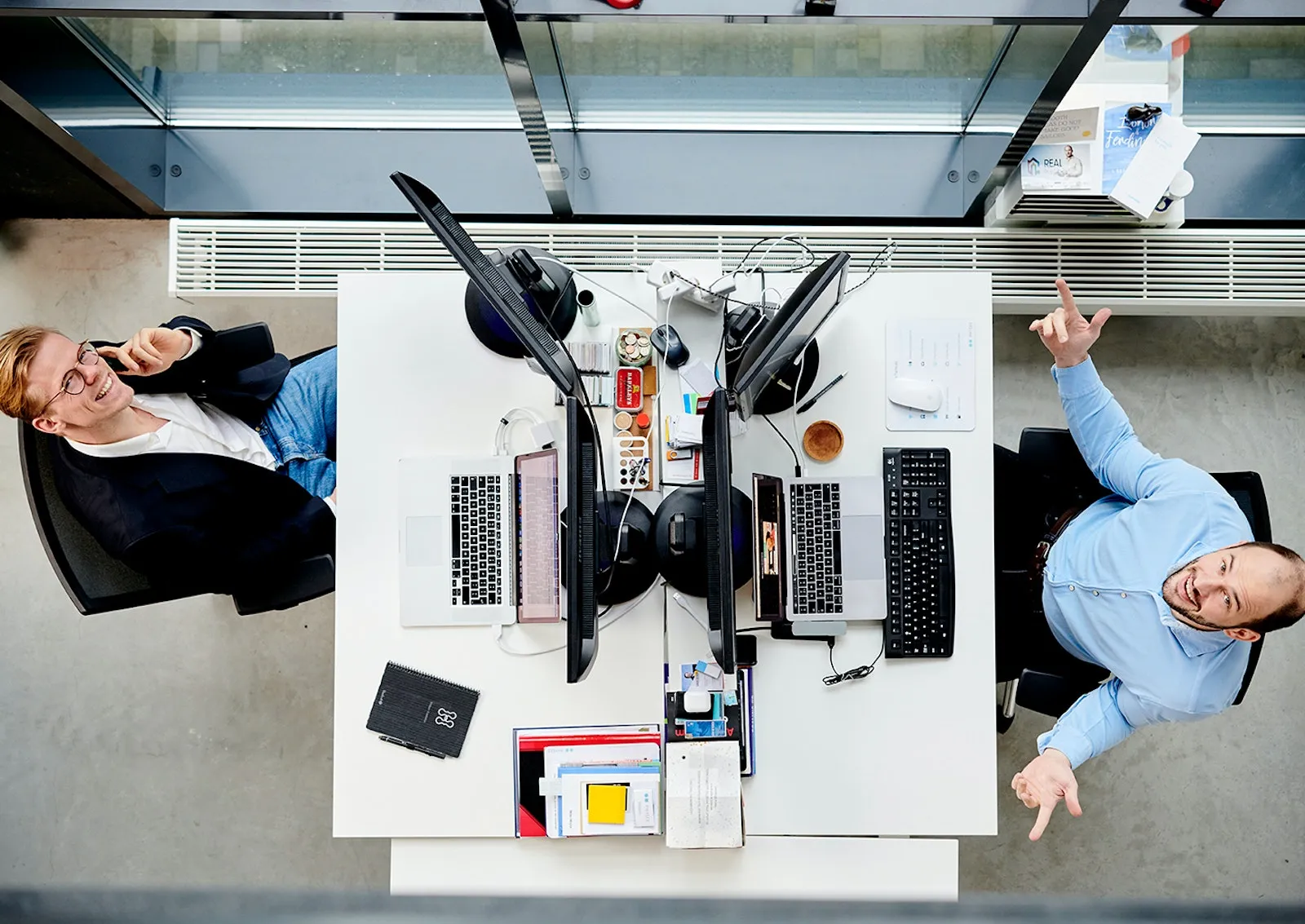December 20, 2023
How PHYSEE is ushering in a future of energy-neutral buildings

PHYSEE arrived as part of Rise’s second batch – a group of companies dedicated to ‘flattening the climate curve’ with innovative technology-based solutions. In Physee’s case, that solution was to use hardware to turn buildings into smart, self-sustaining ecosystems. Commercial buildings are responsible for a huge chunk of global energy consumption – around 40% of global energy and a whopping 30% of global greenhouse gases, all in all.
PHYSEE SmartSkin technology allows buildings to manage energy dynamically, thus saving on the total energy consumption. SmartSkin integrates sensors and solar cells into glass, turning facades into a self-powered proactive skin that uses sensor data to monitor the outside climate and manage internal temperature, light and energy consumption accordingly. PHYSEE reckons its technology can reduce energy consumption by up to 30%.
PHYSEE had already been a successful startup, but for Ferdinand, the change in approach from startup to scaleup was profound. ‘During the course of the Rise programme we really went through a complete pivot in terms of our strategy and business model,’ he says. ‘We had a lot of conversations with people – like Joe (Wilson, Rise Entrepreneur-in-residence) and Pieter (Van der Does, CEO of Adyen) – who challenged us and dared us to get out of our comfort zone. That freed us to experiment and take an outside-the-box look at the business.’
What Ferdinand and his team realised was that PHYSEE was capable of doing far more than it was currently doing. PHYSEE arrived at the Rise programme as a hardware business, but it left with a hardware-enabled software business model too. ‘We need to first increase our installed base working with project developers,’ he says, ‘and following that we will offer services to the end-users that ultimately benefit from the added value. It’s a completely different approach for us, but one that I think will be worth the hassle.’
Ferdinand Grapperhaus, Founder of PHYSEE
The majority of these Rise sessions took place during the second wave of coronavirus, which meant that these entrepreneurs met digitally, rather than in person. Ferdinand admits that was a shame, but the opportunity to ‘work under the hood’ with techleap-design.nl/tl-scaleups at an otherwise unproductive time has put PHYSEE in a fantastic position for 2021. Not least because the EU Green Deal is forcing member countries to bring their commercial buildings up to more sustainable energy grades in just a few years.
‘By 2023 all commercial buildings in the Netherlands will have to be upgraded to energy label C,’ Ferdinand explains. ‘Right now, 68,000 office buildings in the Netherlands do not meet that standard.’ Retrofitting all these buildings to meet government energy standards in time presents a serious challenge, but also a huge opportunity for a business like PHYSEE. ‘We’re enabling real estate owners to upgrade their building portfolios,’ he adds. ‘They get smart, sustainable, comfortable buildings, just by replacing their windows.’
The impending need to meet these energy regulations has provided a big market for PHYSEE, but with that market comes a much bigger pond and some much bigger fish as competition. How to meet energy regulations will be a puzzle for every building owner to solve. Do they go for energy storage? Solar on the roof? Sensors that decrease the energy consumption of the building? ‘There isn’t a single technology that will solve all energy challenges,’ says Ferdinand, ‘but I think we can be one of the key puzzle pieces to solve that challenge.’
For its part, the ecosystem sees PHYSEE’s potential too. PHYSEE recently landed a €4 million investment as well as partnerships with two massive global glass manufacturers. Even more pressing than the 2023 energy regulations are the new BENG regulations introduced by the Dutch government – as of January 2021, all buildings must meet mandatory targets that monitor energy demands of a building, as well as its use of fossil fuels and renewable energy sources. The race to make buildings more energy-efficient has already started and PHYSEE is perfectly placed to make a difference. ‘The BENG regulations are still quite mild and do not represent an integrated vision, however with our solution we can seriously improve a building’s BENG score,’ Ferdinand says. ‘2021 can be a game-changing year for both PHYSEE and the sustainable building movement.’

 How Marleen Vogelaar has successfully scaled Ziel & Shapeways in the US
How Marleen Vogelaar has successfully scaled Ziel & Shapeways in the US